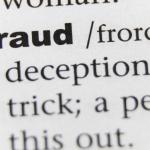In Ethics in the Conflicts of Modernity, moral philosopher Alasdair MacIntyre says this about making moral decisions,
Participants in deliberation [about means to attaining goods] must make their decision because of how their practical reasoning went and not from fear or as a result of fraud or because they were bribed or seduced.
MacIntyre, 230
MacIntyre’s point is that any morally responsible person, when seeking to pursue an individual or common good, must make their moral decisions not based on fear or fraud (deception), or because they “sold out” or because they fell into temptation. Instead, any decision to pursue any good, e.g., a marital relationship, children, an occupation or skill, or to make any moral decision, e.g., disciplining a child as opposed to letting her off the hook, must be born out of a careful application of prudential thinking. Prudence is that classical virtue which rightly guides and manages all other virtues. It is what makes an action a good action.
Wisdom, Prudence and the Nature of Sin
Biblically speaking, prudence is what the Jew or Christian might call proverbial wisdom. It is the wisdom about human affairs which we find in the biblical books often referred to as “the Wisdom literature”: Proverbs, Psalms, Job, Ecclesiastes, and, yes, Song of Songs. Scripture affirms the application of practical reasoning in the process of making good decisions. This process tends to be the norm for all people, regardless of how often we meet that norm (if ever).
While the Holy Spirit could directly transmit knowledge to us regarding particular moral decisions or judgments, most of the time God allows us to learn through this process. There is something mysterious about how we are transformed spiritually as we are challenged with making morally complex decisions. The two simply go hand in hand, as if by design. We learn right or wrong the hard way, apart from individual special revelation. Growing as such requires learning and learning requires us to make mistakes and feel the pain and discomfort of those mistakes. Learning from our mistakes helps us become more prudent thinkers. Nevertheless, because of sin we tend to neglect the most central aspect of this learning process: the starting point of our moral decision making.
The Fear of the Lord Is The Beginning…
Practical reasoning, according to the Bible, also has a fundamental starting point. It doesn’t just start as reason reasoning. It is also a starting point we dare not neglect. That starting point is this: “the fear of the Lord is the beginning of wisdom” (Prov. 9:10). Thus, the act of rational thinking about what concrete goods to pursue in life, how to evaluate the process of attaining those goods and why they should even be considered good, are all things that must be informed first and foremost by our understanding of and relationship to God. Any moral decision that is made apart from the “fear of the Lord” will indelibly contain an error. To not begin our practical decision making about a moral action with this fear of God is to inevitably wind up “missing the mark.” And this is all that sin is—morally irresponsible actions.
In contrast to “the fear of the Lord,” MacIntyre alludes to four common points from which we often do start our moral decision making. These four points are antithetical to the biblical starting point. Again they are: fear (human fear), fraud, bribery and seduction. If we do not begin our moral deliberations with a consideration of the nature and will of God, then we will likely start from one of these four places. However, if we start from one of these places, our decisions will likely result in a lot of human damage. As such, it is worth considering each of these false starting points in order to train ourselves to think more prudentially, and more theologically, before taking moral action.
Acting out of Fear
The most damaging starting point for any moral decision, especially by those claiming faith in Christ, is that of fear. Fear is never a neutral starting point, even if a natural one. Biblically speaking fear is starting from a place of doubt, which is equivalent to faithlessness. Doubt is also natural to us. For the Christian, however, doubt entails a questioning of God’s Providence or of His Power (or possibly His existence).
This is not to say that even the most mature and stalwart among us will not have fears or experience doubt. After all, one cannot be rightly called “courageous” unless some real fear is overcome. It is however to say that fears cannot be what ultimately determines our moral decisions. Most certainly it is to say that we should not start our process of decision making from a place of fearfulness, even if it is sometimes difficult not to start there.
There will be all kinds of practical concerns one has to weigh in life, many of them frightening to us. There are fears about death or injury, fears about loss of relationship or fears about losing financial stability. There are fears that are deepest desires will go unmet or that we will end up alone or miss out on something good.
However, the final decision we make about a morally consequential action cannot be based on fear itself. One should not say simplistically, therefore, something like this: “I am not going to do action X, because I am afraid I will die.” For it very well could be the case that the moral action under consideration may warrant the risk to one’s physical safety, or, in special cases, even the risk to the physical safety of another.
Fear of the Lord Overcomes Fear with Love
For an example of the former, risking one’s own safety in a moral act, think of a mother who is hemorrhaging during labor. She refrains from receiving medical treatment that might be necessary for her survival because it puts the life of her baby at risk. She may be afraid to die, perhaps she is young and just married, which adds to the fear of death the fear of losing out on a life long hoped for. Yet, at the same time, she knows that that fear cannot determine her decision about receiving the medical aid.
Hopefully, prior to the labor and delivery, she has already contemplated the intrinsic value of human life. In doing so she has come to understand that her starting point is “the fear of the Lord.” It is the Lord God whose divine image all human beings bear and, in fearing Him, she realizes she may, at some point, be called to sacrifice her own life for the sake of the life of another image bearer. That that day of sacrifice is the day of her baby’s birth may be especially tragic, but it would not matter if she takes her fear of the Lord as fundamental. In fact, it may even be a moment of great joy, given that her sacrifice would mean life for her own child.
This mother may have also come to understand that Jesus’ words that “greater love has no one than this: to lay down his [or her] life for his [or her] friends” are not simply a sentiment to be parroted on Sunday mornings. They too presuppose a proper “fear of the Lord” who values agape love as the supreme expression of a genuine humanity. As such, this mother may see Jesus’ teachings as an actual way of existing– a divine command of God that embodies an ultimate expression of reality.
If the mother’s prior starting point in her moral decision making, even before becoming pregnant, was “the fear of the Lord” then her action in the middle of trauma, i.e., in foregoing medical treatment for the sake of the child, is one not born out of human fear, but one born out of moral goodness and faithfulness in God. It therefore becomes an act of unconditional love, which is itself the greatest of all virtues (1 Cor 13:13).
Human Fears Lead to Various Evils
For a negative example of the latter, however, consider a mother who has natural fears for an older child. The mother fears intuitively for the safety of her child, often hovering over him to ensure that the child is not in any kind of immediate danger. That danger could be physical or emotional. It usually is a combination of both. This mother stays close while the child does monkey bars on the playground. She teaches the child to look both ways, several times, before crossing the road. She makes sure the child always has their safety helmet on, even when riding his tricycle.
These are all fears that are in many ways justified. However, if the mother’s care for the child, and the daily moral decisions that go into that care, have as their starting point human fear, and not fear of the Lord, then the following kinds of things begin to emerge. The hovering over the child like a mother hen slowly transforms into a controlling act of the mother’s will. This hovering now seems more suited to a Communist dictator than a caring mother. As a result the child is stifled in his personal development. He might be stifled in his physical development– never being allowed to challenge himself by climbing the big tree at the park the child’s muscles stay soft. And he might be stifled in his emotional and moral development– never being permitted to date, the child fails to grasp relational complexity and remains emotionally naive or self-centered.
Even intellectual development can be stifled out of such fear. One thinks of Christian families that ban any challenges to the truth of the Christian worldview from their homes, insulating their children from intellectual maturity. This phenomena has been well documented of late. Today we encounter men and women who have been Christians their entire life, even leaders in the Church, yet been kept ignorant of skeptical challenges to Christianity’s claims. This often results in a personal deconstruction of faith, as once naive believers are presented in their adulthood with relatively mild critiques of biblical truth that nevertheless shatter their worldview. This has been a disturbing, and rather self-serving, trend among so-called “celebrity Christians” who apparently did not read good books as children.
Yet deeper than all of these moral (mis)actions is the potential hindering of spiritual development of another based on fear. Controlling mothers or fathers, or governments, who seek to prevent every danger or preclude every harm from occurring, can stifle a child’s ability to learn to rely on God. In trying to avoid suffering at all costs, we choose to reject God and His goodness, marginalizing His providence and His strength.
After all, consider what it would have been like if Rachel had stopped Jacob from letting Joseph go into the fields to tend sheep with his brothers? Or think if there had been a patriarchal law preventing children under 18 from tending sheep? Joseph would certainly have been spared much personal pain and sorrow, but at what cost to himself, his family, the nation of Egypt and the people and plan of God?
At what cost indeed!
Corporate Fear Motivates Great Evil
Human fear is not only the wrong starting point for individual moral decisions. Wherever human society increases so does human vice. Wherever larger numbers of people reject the fear of the Lord as their starting point for decision making, there you will often find human fear as the starting point. We see this most poignantly today in the current discussions on race.
Carol Swain, former professor at Princeton University, highlights this problem of racial fear in America today, showing how fear of other racial groups motivates extremist behavior. After highlighting several examples of violent behavior and demented views of morality by racial hate groups (of all races), Swain concludes:
No racial group can claim a monopoly on decency. Fear is the catalyst that pushes ordinary citizens to embrace extremist causes when they believe they can reshape society….A combination of factors can drive seemingly ordinary and reasonable people toward extremism. One such factor is fear for personal safety and security. If people believe their life or property is genuinely threatened, they may seek to eliminate that threat as expeditiously as possible. White racial leaders prey upon this fear in whites by focusing on crime statistics that paint African Americans as criminals.
Carol Swain, “Racial Supremacy and Covenantal Reconciliation” 194
In a rare, and courageous, move, Swain goes on to indict the new racism that exists against whites:
Few leaders, either political or religious, are willing to talk about the new racism where whites are being assailed for their ‘whiteness’–presumed to be racist because of the color of their skin. Yet many who make these accusations ironically claim the mantle of Martin Luther King, Jr. who hoped for the day when his children would ‘one day live in a nation where they will not be judged by the color of their skin but the content of their character.’
Swain, 195
While the human fear of an overprotective mother or overbearing father may only result in the stifling of a single child, the fear of entire racial groups can end in a staggering amount of human destruction. For evidence that it is the most ordinary among us that can usher in such destruction, one only has to briefly glance at the corpus of holocaust studies since World War II.
Conclusion: Fear of the Lord is The Solution to Fear
In sum, life is full of problems, many of which cannot be avoided. As Christian psychiatrist M. Scott Peck once pointed out, it is the fear of problems, and the emotional pain they might cause, that preclude people from not only becoming wise, but that actually facilitates most mental illness:
It is through the pain of confronting and resolving problems that we learn….It is for this reason that wise people learn not to dread but actually to welcome problems and actually to welcome the pain of problems. [However] Most of us are not wise. Fearing the pain involved, almost all of us, to a greater or lesser degree, attempt to avoid problems….This tendency to avoid problems and the emotional suffering inherent in them is the primary basis of all human mental illness.
M. Scott Peck, The Road Less Traveled, 16-17
True wisdom cannot start from a place of nowhere. Nor can it start from a place of human fear. Wisdom and moral decision making must begin where God has told us to begin, from “the fear of the Lord” who is the author of Wisdom:
The LORD made me
at the beginning of His creation
before His works of long ago.
I was formed before ancient times,
from the beginning,
before the earth began.
Proverbs 8:22-23To fear the LORD is to hate evil.
Proverbs 8:13
In the next article I will look at the problem of making our moral decisions based on fraud.














